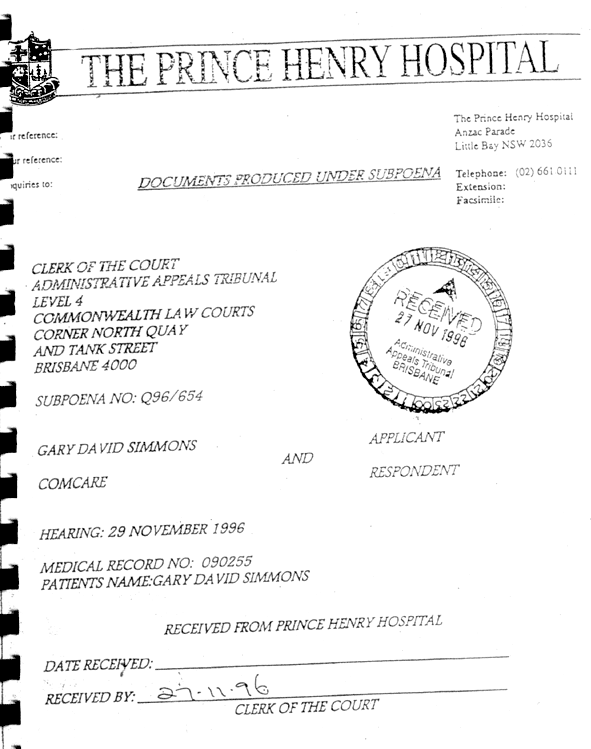Explain Fronting Arrangement

Fronting Arrangement Technical Terms
Fronting Arrangement: The issuance of a policy by one insurer on behalf of a second insurer because the second insurer is not licensed or admitted in the state of jurisdiction for the line of business being written. The first insurer actually issues the policy to the insured and retains legal responsibility for meeting claim payments under it, but is reinsures 100% of its exposure to the second insurer.
Discover Fraud

Fraud Technical Terms
Fraud: The term "fraud or dishonesty" encompasses all those risks of loss that might arise through dishonest acts or omissions.
Discover Franchise

Franchise Technical Terms
Franchise: A type of excess whereby claims under a certain amount are not paid. However, claims over the franchise amount are paid in full.
Expose Fortuitous loss

Fortuitous loss Technical Terms
Fortuitous loss: An unforseen loss is termed a fortuitous loss. Insurers will only insure fortuitous losses. Whilst an insurer knows that there will be motor accidents, it cannot predict which insureds will suffer a loss.
Remember Flood

Flood Technical Terms
Flood: Means the inundation or covering of normally dry land by water which: escapes or overflows from, or cannot enter, because it is full or has overflowed, or is prevented from entering, because other water has already escaped or been released from it, the normal confines of any watercourse or lake, including any that may have been modified by human intervention, or reservoir, canal, dam or storm water channel. Flood does not mean storm water run off from areas surrounding the site or water escaping from any water main, pipe, street gutter, guttering or surface.
Discover First party

First party Technical Terms
First party: The first and second parties are simply the parties to an insurance contract. A third party is not a party to the contract but a party who seeks to be compensated for some injury or loss caused by the insured. A first party policy may also refer to insurance for the policyholder’s own property or person.
Remember Financial Services Guide (FSG)

Financial Services Guide (FSG) Technical Terms
Financial Services Guide (FSG) : This is a statement that must be given to a Retail Client when, or before, a Financial Service or Financial Product is provided. It contains information about the service provider, who he/she is working on behalf of, remuneration, dispute resolution and other information required by the Financial Services Reform Act (FSRA)—now in the Corporations Act.
Explain Fidelity insurance

Fidelity insurance Technical Terms
Fidelity insurance: An insurance policy which covers the misappropriation of goods or money by employees.
Expose Facultative reinsurance

Facultative reinsurance Technical Terms
Facultative reinsurance: Reinsurance negotiated and placed on a case-by-case basis, as opposed to the automatic protection provided under a reinsurance treaty. Each facultative reinsurance arrangement is subject to a process of offer and acceptance between the parties.
Discover Expiry date

Expiry date Technical Terms
Expiry date: The date upon which a policy ends. Conventionally, 4.00 pm is the normal time of expiry, although this varies by type of policy and by insurer.
Remember Excess

Excess Technical Terms
Excess: An excess on a policy is the first amount that must be contributed by the insured towards each claim. When one or more excesses apply to a policy, they will be shown on the insurance schedule.
Remember Ex gratia payment

Ex gratia payment Technical Terms
Ex gratia payment: A payment made by an insurer to a claimant as an act of grace, where no contractual entitlement to the claim exists. The insurer will make an ex gratia payment in order to maintain good will, public relations, or as a matter of social justice or some other non-contractual reason.
Explain Event

Event Technical Terms
Event: An incident or situation, which occurs in a particular place during a particular interval of time.
Explain Endorsement

Endorsement Technical Terms
Endorsement: Any writing appearing on a policy, or additional documentation attaching to a policy, whereby the printed terms of the policy, the parties to it, or other particulars, are varied.
Expose Eighths system

Eighths system Technical Terms
Eighths system : A method of calculating unearned premium, usually under a proportional reinsurance treaty where premium details are provided quarterly. Risks are assumed to attach on average on the middle day of each quarter. Therefore, at the end of a calendar year, 7/8ths of premiums on policies accepted in the first quarter are assumed to be earned, with 1/8th unearned, and so on.
Discover Effective date

Effective date Technical Terms
Effective date: The date on which the cover of an insurance policy commences.
Explain Earned premium

Earned premium Technical Terms
Earned premium: Insurance policies usually run for a period of 12 months. An insured can cancel a policy at any time and request a refund of premium. Therefore, insurers must only take into the books of account that portion of premium which corresponds to actual elapsed time on risk. That portion of premium which can be taken up in the accounts is called earned premium. That portion of premium yet to expire is termed unearned premium.
Discover Duty of disclosure

Duty of disclosure Technical Terms
Duty of disclosure: A requirement under Section 21 of the Insurance Contract Act. The insured has a duty to disclose every matter known to be relevant to the insurer, or that a reasonable person in the circumstances could be expected to know to be relevant to the insurer. The duty applies up until a contract is entered into, and when it is renewed, varied, reinstated or extended. An intending insured must be advised of their duty to disclose material facts.
Explain Due date

Due date Technical Terms
Due date: The date a policy is in force to and by when a renewal premium must be paid.
Remember Dispute Resolution Process

Dispute Resolution Process Technical Terms
Dispute Resolution Process: A system for resolving complaints which an AFS Licence holder is required to have in place as part of their compliance with the Financial Services Reform Act (FSRA)—the FSRA is now part of the Corporations Act. The process consists of an Internal Dispute Resolution system and an External Dispute Resolution system.
Explain Doctrine Of Precedent

Doctrine Of Precedent Technical Terms
Doctrine Of Precedent: Reliance by judges on previous judicial decisions when deciding similar cases before them.
Expose Disclaimer

Disclaimer Technical Terms
Disclaimer: A person may make a statement to the effect that they will not accept any responsibility for certain things which may (or may not) happen. For example, disclaimers are used to try and avoid or limit a person’s liability for breach of duty of care.
Expose Disaster

Disaster Technical Terms
Disaster : A disaster is said to have occurred when the normal community and organisational arrangements cannot cope with a hazard impact.
Discover Direct policy

Direct policy Technical Terms
Direct policy: The parties to a direct insurance contract are the insurer and the original insured. The term is used to differentiate the direct policy contract from any reinsurance contract that may be arranged as a result of the direct policy contract.
Discover Direct insurer

Direct insurer Technical Terms
Direct insurer: Is an insurer which deals direct with the consumer rather than through an intermediary or agent.
Discover Depreciation

Depreciation Technical Terms
Depreciation: A decrease in the value of any type of property over a period of time resulting from use, wear and tear, or obsolescence.
Explain Deposit premium

Deposit premium Technical Terms
Deposit premium: Amount paid by a client as an initial premium under a policy. The deposit premium is subject to adjustment at the end of the policy period based on, for example, claims experience. After adjustment, the insured receives a refund or is required to pay extra premium, as the case may be.
Remember Defendant

Defendant Technical Terms
Defendant: Person or entity being sued by the plaintiff.
Expose Deductible

Deductible Technical Terms
Deductible: The amount of loss that is to be born by the insured prior to being able to claim under a policy. Sometimes called an “excess”.
Explain Decline

Decline Technical Terms
Decline: To refuse. For example, the insurer may decide not to accept a proposal for insurance or perhaps decline to accept a claim.
Discover Damage Damages

Damage Damages Technical Terms
Damage Damages: Compensation for loss suffered, which is awarded by courts and endeavours to place a person in the position where they would have been had the loss not been suffered.
Remember CTP Insurance
CTP Insurance Technical Terms
CTP Insurance: Compulsory Third Party insurance (CTP Green slip in NSW) is the insurance that is needed when registering a vehicle. CTP insurance is intended for the situation where another person is injured or killed in an accident, which is caused by the driver of the insured vehicle. Loss or injury suffered by a person, normally calculated in monetary terms.
Remember CTP Insurance
CTP Insurance Technical Terms
CTP Insurance: Compulsory Third Party insurance (CTP Green slip in NSW) is the insurance that is needed when registering a vehicle. CTP insurance is intended for the situation where another person is injured or killed in an accident, which is caused by the driver of the insured vehicle.
Remember Coverage

Coverage Technical Terms
Coverage: The scope of the protection provided under a contract of insurance.
Remember Cover note

Cover note Technical Terms
Cover note: A contract of insurance intended by the insurer to provide temporary insurance cover and which is to be replaced by another contract of insurance. Cover notes are usually issued where further particulars are to be ascertained or where the insured has been requested to comply with additional risk acceptance conditions before a more permanent insurance contract is entered into. Also called an Interim Contract of Insurance under Section 38 of the Insurance Contracts Act.
Remember Cover and covers

Cover and covers Technical Terms
Cover and covers: Means the protection provided by the policy.
Expose Cooling off period

Cooling off period Technical Terms
Cooling off period: A period of not less than 14 days which must be provided to Retail Clients on Retail products. During this period a client may return the policy and receive a full refund of premium unless a claim has been made.
Expose Contribution

Contribution Technical Terms
Contribution : Where an insured has two or more insurance policies which are covering the same interest against the same peril, the insured can make his/her claim in full against one or other of the insurers. The chosen insurer can then require the other insurers to make a proportional contribution towards that loss. (Given that the insurance policies are subject to the rule of indemnity, the insured is prevented from recovering from all the insurers and therefore making a profit from his/her claims).
Explain Contract

Contract Technical Terms
Contract : An agreement between two or more parties which is enforceable by law.
Discover Contra Proferentum Rule

Contra Proferentum Rule Technical Terms
Contra Proferentum Rule: The legal rule by which the words of an author are to be construed against the author. Therefore, any ambiguity in an insurer’s proposal form or policy wording will be construed against the insurer. Note that this rule will only be applied where there is a real ambiguity.
Expose Consideration

Consideration Technical Terms
Consideration: A simple contract requires consideration to be given by the parties to the contract. The consideration must be worth something. It may be in the form of money, goods or services.
Remember Consequential Loss

Consequential Loss Technical Terms
Consequential Loss: A loss of property may also result in a "loss of profits" and/or additional expenses. This is a loss which is a consequence of the property loss. Consequential loss insurance is usually referred to as business interruption’ insurance. It is available as an addition to a property policy.
Expose Conditions subsequent to policy

Conditions subsequent to policy Technical Terms
Conditions subsequent to policy: Conditions which must be fulfilled in order for a policy to continue. An insured may be required to meet certain conditions while the policy is in force—e.g. pay the premium, maintain the premises, have the burglar alarm regularly serviced, etc.
Explain Conditions precedent to policy

Conditions precedent to policy Technical Terms
Conditions precedent to policy: Conditions which must be fulfilled in order for a policy to be valid— e.g. the Duty of Disclosure.
Expose Condition precedent to liability

Condition precedent to liability Technical Terms
Condition precedent to liability: Conditions which must be fulfilled if the insured’s claim is to be accepted. For example, a claims co-operation condition may require an insured to make its books of account available for inspection should a loss occur.
Expose Compulsory insurance

Compulsory insurance Technical Terms
Compulsory insurance: Insurance arranged in order to comply with the law—e.g. workers compensation insurance or compulsory third party insurance. Also referred to as Statutory Insurance.
Discover Comprehensive Insurance

Comprehensive Insurance Technical Terms
Comprehensive Insurance: (Usually associated with motor vehicle insurance) Provides specified cover for damage to insured car as well as damage the insured car may cause to the property of others.
Remember Common Law

Common Law Technical Terms
Common Law: The principles of law arising from court decisions.
Remember Commission

Commission Technical Terms
Commission: A fee charged by a broker or agent for services in the sale of an insurance contract.
Discover Collection or Set

Collection or Set Technical Terms
Collection or Set: A group of items of sufficiently common type, appearance or nature that they reasonably belong together and that is devalued if one or more of the group is lost or damaged.

